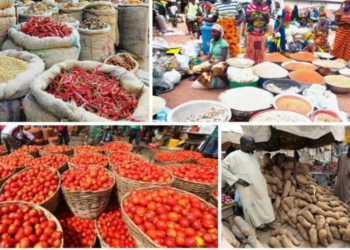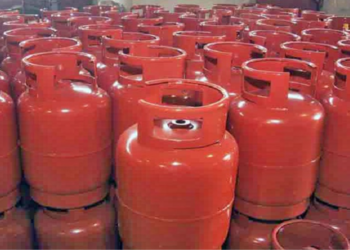The Federal Government is planning a six-month suspension of import duties on staple food items, drugs, and other essential items as a measure to curb inflation.
This was contained in an executive order issued by the president and seen by Nairametrics.
The document seen by Nairametrics did not include the signature of the President however Nairametrics can verify the source.
The document also includes plans to waive levies on fertilizers, poultry feed, flour, and grains.
Executive order on inflation
The Inflation Reduction and Price Stability Order, as outlined in the document, will mandate the Ministry of Finance and the Central Bank of Nigeria to devise a plan for offering low-interest loans to the agriculture, pharmaceutical, and manufacturing sectors.
“The import duty and other tariffs are to be suspended on the following for six months:
- Staple food items;
- Raw materials and other direct inputs used for manufacturing:
- Inputs for agriculture production including fertilisers, seedlings, and chemicals
- Pharmaceutical products
- Poultry feeds, flour and grains” the document said.
The president is also likely to suspend value-added tax (VAT) on automotive gas oil, some basic food items and semi-processed staple food items such as noodles and pasta, raw-material inputs for the manufacture of food items, electricity and public transportation, as well as agricultural inputs and produce and pharmaceutical products for the rest of the year.
Importation of Paddy Rice
Nairametrics had earlier reported that the federal government in its Accelerated Stabilization and Advancement Plan (ASAP) report submitted by Finance Minister, Wale Edun, is considering the importation of paddy rice into the country as well as maize.
The ASAP report recommended an executive order on the importation of paddy rice to millers to stem the growing tide of food inflation across the country.
The document also recommends the following:
- Import duty & VAT suspension on specified items
- Importation of paddy rice by millers
- Import duty exchange rate peg
Meanwhile, the proposed plan by the federal government conflicts with earlier statements by President Tinubu on food imports earlier this year.
The President in an address to State Chairpersons of his All Progressive Congress (APC) had stated that his administration will not continue food imports hoping to turn the present challenge into an opportunity for the future.
What you should know
In Nigeria, a food crisis looms large, challenging the nation’s stability. Food prices have surged, with food inflation reaching 40.5%.
- Among the hardest-hit commodities is rice, a dietary staple. In the past year alone, rice prices have skyrocketed by 169%, reaching nearly N90,000 per bag in March and April.
- This sharp increase in food costs is placing immense strain on households across the country, exacerbating an already fragile economy.
- It’s estimated that around 31 million Nigerians may face severe food shortages by August this year.
- The repercussions of this crisis extend far beyond economic concerns, impacting health, education, and overall societal well-being.





















